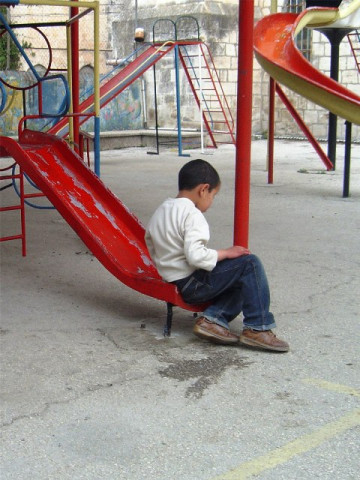“His teacher says that he doesn’t participate in class. She says he’s just average.”
I was dumbfounded, not because my brother had under-performed but as to how the criteria for being ‘average’ had been relegated to class participation. I had to ask myself - what ever happened in this socially constipated century that has us so vehemently convinced of the inferiority of introversion?
Introversion, for a long time was the hallmark of the sage, the thinker; the wanderer and the wonderer. Now it’s grounds for social anxiety medication. Isn’t it odd, this taboo we suddenly seem to have imposed on extroversion?
Perhaps the following fears are to be blamed:
"Introversion is a silent cry for help"
It never ceases to amaze me how we vouchsafe empathetic labels like ‘sad’, ‘lonely’ and ‘shy’ for the introverted kid, whilst missing no opportunity to be facetious towards people who can’t seem to stop grating their hands against soap.
Maybe it’s some quotient of ‘salvageability’ we calculate; where the introvert is a fender bender, and the psychologically impaired is the Titanic that has hit its iceberg. Whatever the psychological impetus, we see introversion as an inability to socialise and not an active avoidance of it. A distinction epitomised by my roommate at college.
I remember how for the better part of our four year stay, he would read an e-mail about an event, wince, look exasperatedly at me and ask:
“Jaana hai?” (Do we really have to go?)
In fact, the most gregarious he had ever been was in his final year at LUMS when he began to ‘get out’ a little more. By modern standards, my friend should have been a colossal failure; a sullen social reject. Instead, he is remembered not only for his genial and helpful demeanor, but also as the only person from my batch to be inducted into a fully funded PhD program in the US.
"Introversion results in social inadequacy"
Again, why must we truss the ‘mingling’ model up as the pinnacle of social development?
Why is it that alternative modes of interaction like the Internet, gaming communities (such as World of War craft), book clubs and books themselves must be fundamentally inferior to corporeal interaction?
Jonathan Franzen, in his 2012 collection of non-fiction ‘Farther Away’ relates the story of how difficult it was for him to convince his long time friend and rival, David Foster Wallace (author of ‘Infinite Jest’) to attend social gatherings, and that on one of the two occasions where he did manage to convince him, Wallace bolted back to Franzen’s apartment and picked up a book instead.
Ironically enough, if you read ‘Infinite Jest’ or any other of David’s works, the one thing you will undoubtedly assent to is his trenchant insight into the information-age zeitgeist. Granted, Wallace might have been a prodigious exception, but the lifestyle he had was/is not uncommon. Thousands, if not millions of people, turn to books and magazines for intellectual and social fodder, and most of them tend to turn out just fine.
"Introversion is the bedrock of anti-social tendencies"
Arguments like this bring to mind paedophilic prowlers on the Internet whose timidity and awkwardness are presumably to blame for their pathological pursuits. This calumny, peddled by Hollywood and TV in their patent ‘jihalat’ (ignorance), is sadly very counter intuitive.
Anti-social people, (not so) surprisingly, tend not only to be amiable but will often be significantly more charming than people you will normally come across. To explicate the point, anti-social refers to engaging in actions that run counter to accepted moral standards; asocial refers to not being interested in social exchange and interaction. Ergo, your golfing buddy has more chance of having image folders of 8-year-olds on his desktop than the aloof engineer who lives down the lane. This, however, does not mean that you 9-iron your friend’s mandible the next time you see him.
Similarly, the pith of the rant above is not to belittle extroversion (which has its own merits) or to deny social anxiety, but to identify and dispel erroneous beliefs about a very large segment of our society that is special in its own way.
Part of the thrill and ecstasy of the human experience, stems from coming across people who see the world through a different lens than ours--walk different lines. Every one brings their own dish to the buffet table and if none of us can tolerate only one pulao being served at a shaadi, why can’t we make the same demand of life?
Read more by Sharaf here.



COMMENTS
Comments are moderated and generally will be posted if they are on-topic and not abusive.
For more information, please see our Comments FAQ